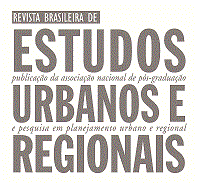Abstract
In this article, the principles of the National Rural Water and Sanitation Project (PNSR), elaborated during the 1980s, are analyzed, discussing the advances and the limits reached in the development of rural water supply and sanitation in Brazil. The methodology used was an analysis of the content of documents and interviews with key actors. The results have demonstrated that the formulation of the PNSR promoted a new contribution of knowledge to the water and sanitation sector in Brazil, bringing innovations concerning the approach to water and basic sanitation in rural areas, especially relating to its integration with health, the processes of education and social participation, the decentralization of services, the use of appropriate technologies and community involvement in the management of services. Although it did not result in a government program, the legacy left by the PNSR has provided a great contribution in the form of studies, which are still relevant today.
Keywords:
Water Supply; Rural Area; Sanitation; Formulation of Public Policies; PNSR
